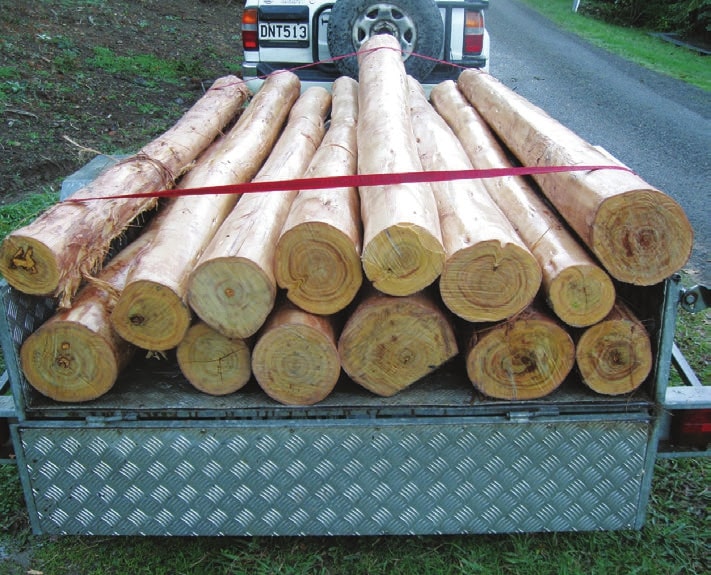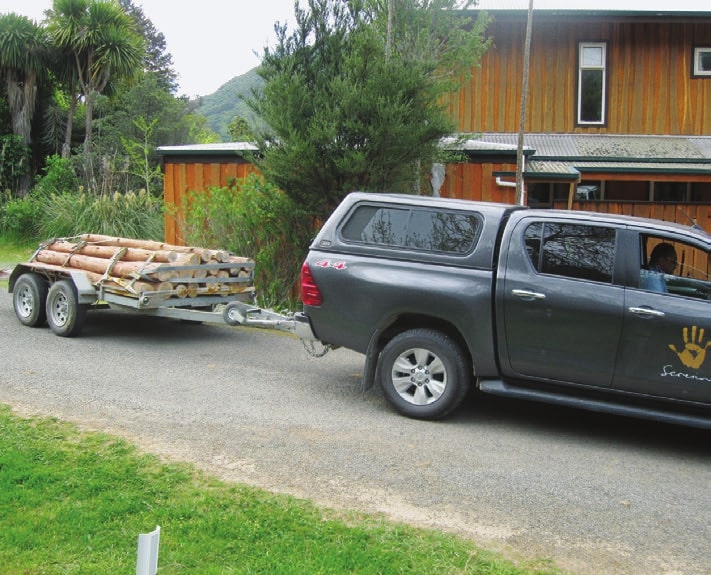Naturally durable strainer posts producing an income
Paul Millen, New Zealand Tree Grower February 2017.
The potential for naturally durable hardwood vineyard posts continues to expand in Marlborough, with many hundreds of hectares of new vineyard being planted last winter.
Meanwhile the large harvesting machines continued to knock posts over, with some grape growers reporting five to 10 per cent breakage during last year’s harvest. Between June and August I received a number of enquiries from growers wanting to acquire hundreds of durable eucalypt posts that I could not supply. However, there were also some growers wanting strainers posts.
This provided the opportunity for my brother Ash and I to thin some of the early trials planted at our property, Tai Tane, here in the Marlborough Sounds. We had planted a mix of species in small stands between 2003 and 2007 from which thinned stems could be extracted. About 50 trees were felled and 2.4 metre-long strainer posts cut to length, with most trees producing two posts from each tree, followed by de-barking and strapping both ends with a nail plate.
Trees felled included Eucalyptus bosistoana and E. globoidea which are both species in the NZ Dryland Forest Initiative’s breeding programme. Other stringybark species of interest to farm forestry including E. muelleriana, E. laevopinea, E. macrorhyncha, E. microcorys and E. pilularis.
While taking no measurements, the species that had the least splitting, in some cases no split, and had the narrowest sapwood band were E. globoidea and E. macrorhyncha. E. bosistoana also had little end splitting as did E. microcorys. However, these two species had a wider more variable sapwood band which was too wide in some logs to be sold for strainers. But it made excellent firewood.
All other three species, E. muelleriana, E. laevopinea and E. pilularis, generally had a narrow sapwood band but with most logs end splitting due to high growth strain. There were some which split so severely that they could not be sold for strainer posts − more firewood.
While the species sold were a range of durability from class one to three, our sale price was based on prices for similar size treated pine strainers at $30 to $40 plus GST.
The grape growers who purchased the posts were keen to give them a go and expressed how much they liked to support our research. This exercise reinforced the need for the NZ Dryland Forest Initiative’s research programme to be screening to select for breeding trees which have low growth strain, a narrow sapwood band and highly durable heartwood.



 Farm Forestry New Zealand
Farm Forestry New Zealand